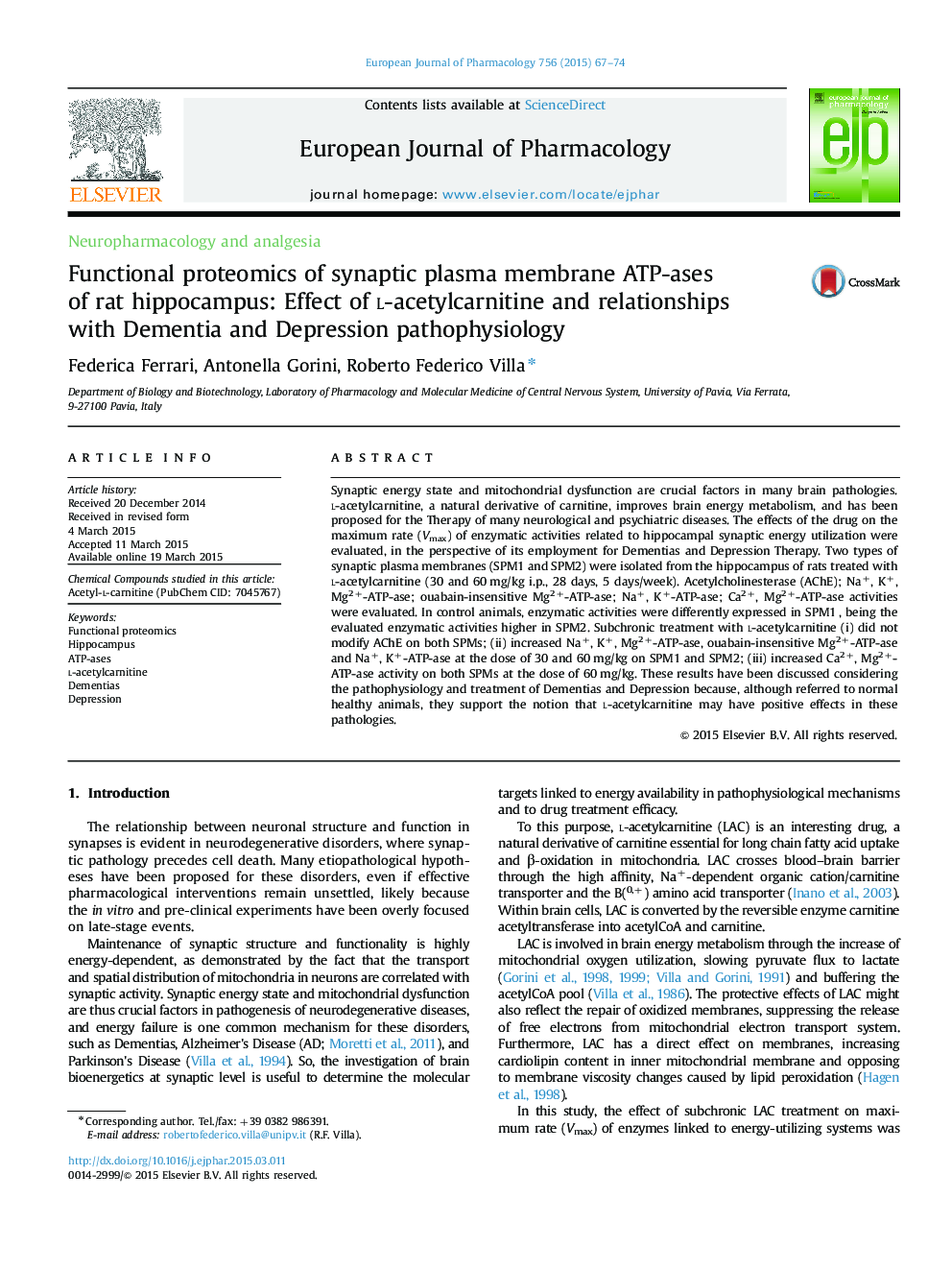| Article ID | Journal | Published Year | Pages | File Type |
|---|---|---|---|---|
| 2531474 | European Journal of Pharmacology | 2015 | 8 Pages |
Synaptic energy state and mitochondrial dysfunction are crucial factors in many brain pathologies. l-acetylcarnitine, a natural derivative of carnitine, improves brain energy metabolism, and has been proposed for the Therapy of many neurological and psychiatric diseases. The effects of the drug on the maximum rate (Vmax) of enzymatic activities related to hippocampal synaptic energy utilization were evaluated, in the perspective of its employment for Dementias and Depression Therapy. Two types of synaptic plasma membranes (SPM1 and SPM2) were isolated from the hippocampus of rats treated with l-acetylcarnitine (30 and 60 mg/kg i.p., 28 days, 5 days/week). Acetylcholinesterase (AChE); Na+, K+, Mg2+-ATP-ase; ouabain-insensitive Mg2+-ATP-ase; Na+, K+-ATP-ase; Ca2+, Mg2+-ATP-ase activities were evaluated. In control animals, enzymatic activities were differently expressed in SPM1 , being the evaluated enzymatic activities higher in SPM2. Subchronic treatment with l-acetylcarnitine (i) did not modify AChE on both SPMs; (ii) increased Na+, K+, Mg2+-ATP-ase, ouabain-insensitive Mg2+-ATP-ase and Na+, K+-ATP-ase at the dose of 30 and 60 mg/kg on SPM1 and SPM2; (iii) increased Ca2+, Mg2+-ATP-ase activity on both SPMs at the dose of 60 mg/kg. These results have been discussed considering the pathophysiology and treatment of Dementias and Depression because, although referred to normal healthy animals, they support the notion that l-acetylcarnitine may have positive effects in these pathologies.
